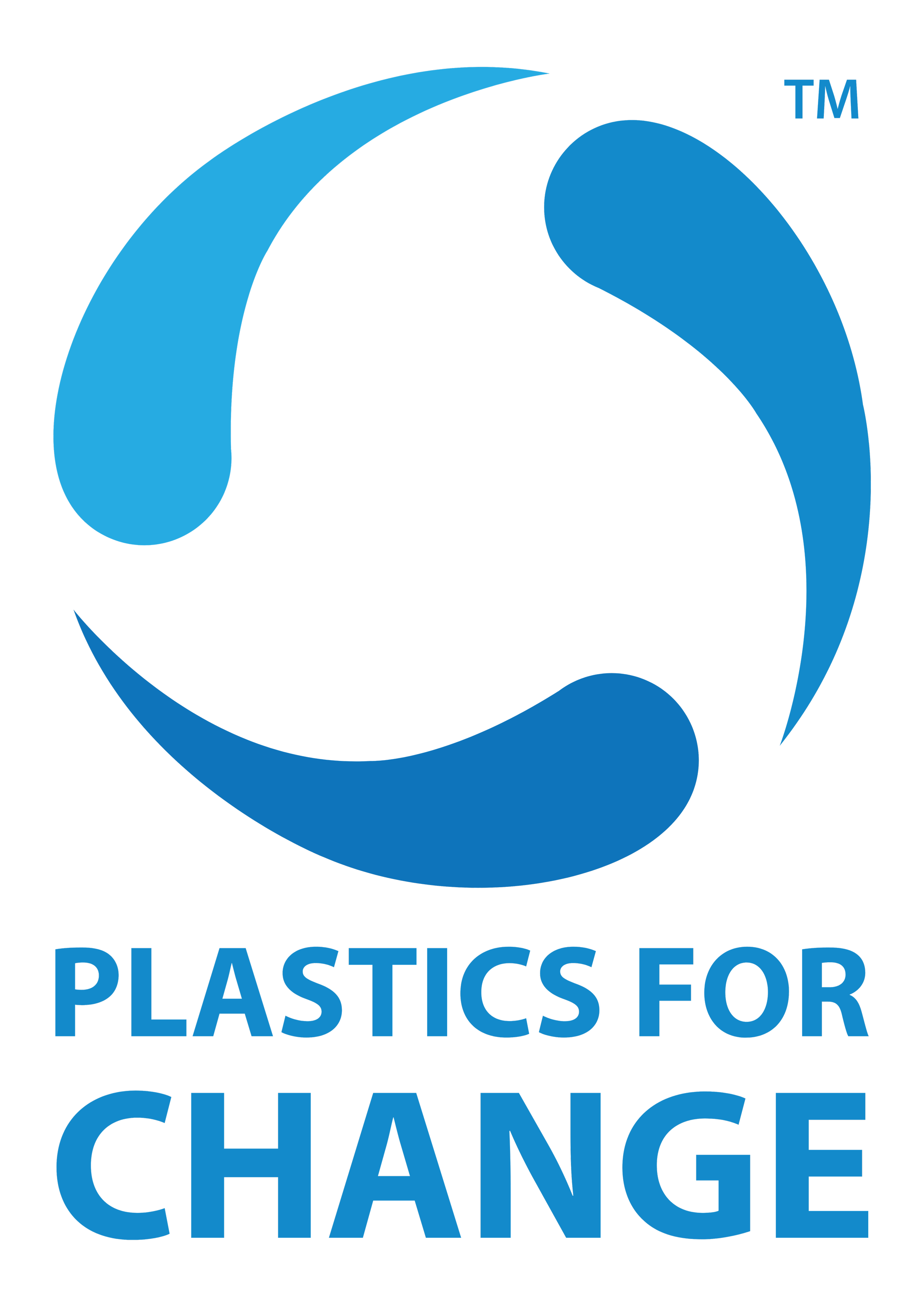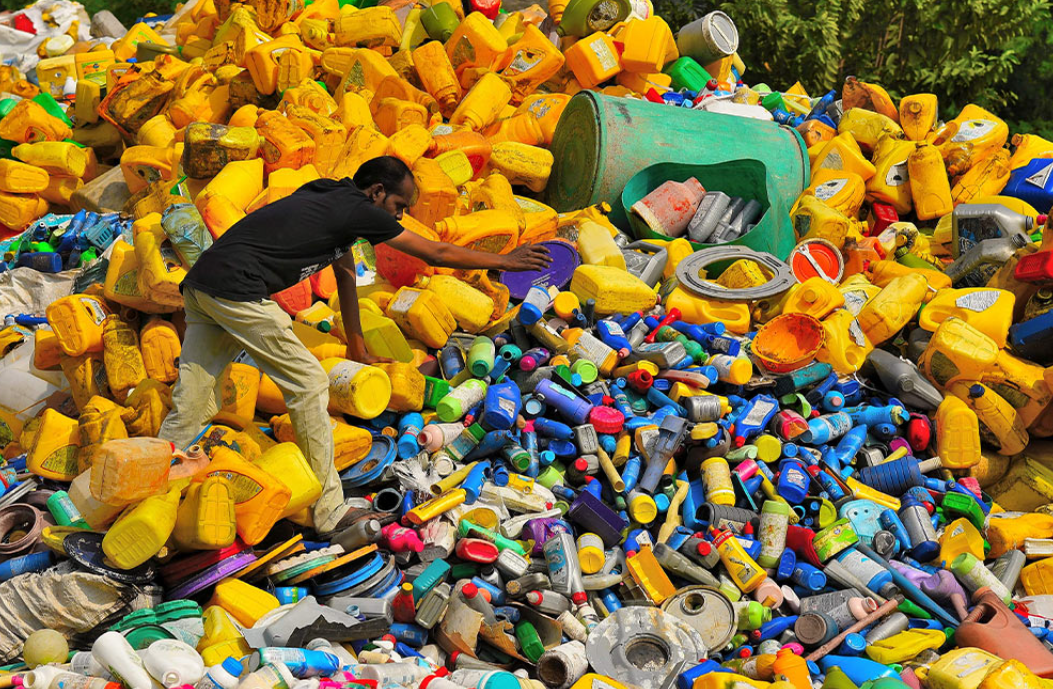How is recycled plastic made?
(Source Credits: The Wire)
Plastic pollution is a global concern, with India facing particularly acute challenges. A developing country India alone generated 3.4 million tonnes of plastic waste annually, as reported by the Central Pollution Control Board. However, recycling offers a ray of hope. However, this waste presents a significant opportunity. By embracing recycling initiatives, India can transform this plastic waste into a valuable resource. This approach fosters a circular economy, where plastic is continuously recycled and reused, minimising environmental impact.
1. The Collection Phase:
It all starts with you. When you place your plastic items in the recycling bin, you're setting off a chain of events. In India, however, the formal waste collection system often falls short. According to a 2021 report by the Centre for Science and Environment, only 60% of India's plastic waste is collected. The informal sector, including waste pickers, plays a crucial role, collecting up to 60% of plastic waste in some cities.
(Source Credits: Procurement Magazine)
These informal workers, estimated to number between 1.5 to 4 million across the country, are the unsung heroes of India's waste management system. Operating in harsh conditions, they sift through garbage to collect and sort recyclable materials, including various types of plastic. Waste pickers recover approximately 20% of recyclable waste in Indian cities, according to a 2018 report by the International Labour Organization. In major cities like Delhi, Mumbai, and Pune, this figure can rise to 80%. Their work not only provides them with a livelihood but also significantly reduces the burden on landfills and municipal waste management systems.
2. Sorting - Not All Plastics Are Created Equal:
At recycling centres, plastics undergo sorting. Different types of plastics need to be separated. In advanced facilities, optical sensors and air jets automate this process. However, in India, much of this work is still done manually by waste pickers or workers. The informal recycling sector in India employs an estimated 1.5-4 million waste pickers, according to a 2018 report by the International Labour Organization.
3. Cleaning and shredding:
Next, sorted plastics are cleaned to remove labels, adhesives, and remaining content. Clean plastics are then shredded into small flakes. This increases surface area for more efficient processing. In India, small-scale recycling units often use locally manufactured shredders, supporting the government's “Make in India” initiative.
4. Melting and Extrusion:
The flakes are melted down and extruded into small pellets called nurdles. These pellets are the raw material for new plastic products. Before becoming new products, pellets undergo rigorous testing. In India, the Bureau of Indian Standards (BIS) has set quality standards for recycled plastics, ensuring they meet necessary requirements for strength, purity, and consistency.
5. Remanufacturing: A New Life Begins:
The final stage of recycling transforms plastic pellets into new products, reflecting a convergence of environmental responsibility, consumer demands, and regulatory pressures. Leading global brands, such L’Oreal, Ocean Bottle, The Body Shop etc are increasingly incorporating recycled plastics into their products and packaging. This shift is driven by growing consumer preference for sustainable options, with 78% of the consumers favouring environmentally responsible companies. Innovations in recycling technology, circular economy initiatives, and Extended Producer Responsibility guidelines are further accelerating this trend. By embracing recycled plastics, brands are not only complying with their country’s Plastic Waste Management Rules but are also securing consumer loyalty and long-term business viability in an increasingly sustainability-focused market.
The Impact of Recycling:
Recycling plastic reduces the need for virgin plastic production, conserves energy, and keeps waste out of landfills and water bodies. In India, where 80% of plastic waste ends up in landfills or water bodies, recycling is crucial. A study by The Energy and Resources Institute (TERI) found that recycling PET bottles in India saves 50-60% energy compared to producing virgin PET.
Challenges and Innovations:
Despite progress, India faces challenges in plastic recycling. Limited segregation at source, lack of formal waste collection in many areas, and the prevalence of multi-layer packaging (which is difficult to recycle) are significant hurdles. However, innovations are emerging.
For instance, we at Plastics For Change have come up with innovative solutions to recycle those hard to recycle plastic by converting them into houses for our waste pickers. There is so much more one can with recycled plastic and the sky's the limit.
Here’s what you can do?
1. Segregate waste at source - this significantly aids the recycling process.
2. Support local waste picker associations - they're the backbone of India's recycling ecosystem.
3. Choose products made from recycled materials to support the recycling economy.
4. Advocate for better waste management policies in your local community.
Remember, the journey of recycled plastic starts with a simple action – properly disposing of your plastic waste. Your small effort can lead to significant environmental benefits and support thousands of livelihoods in the recycling sector.


